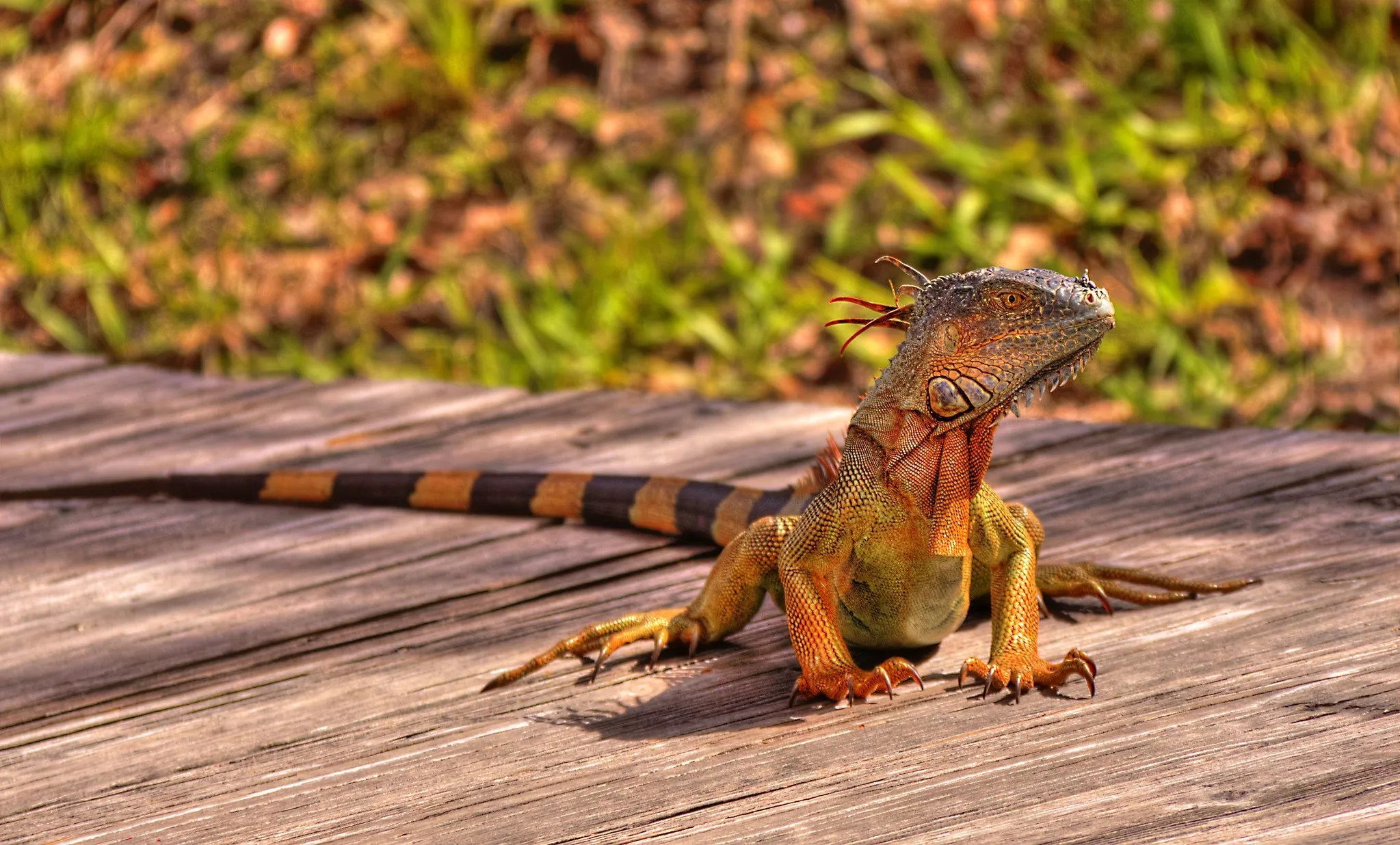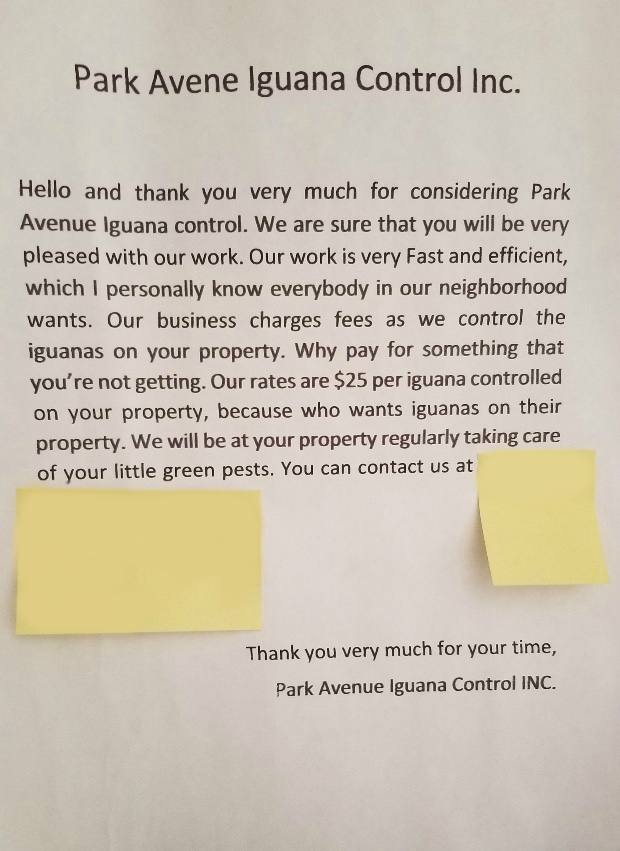

Audio By Carbonatix
Just weeks after a pool boy was accidentally shot by an iguana hunter in their neighborhood, two enterprising Boca Raton teens began stuffing mailboxes with flyers advertising the pair’s extermination services. Working under the name “Park Avenue Iguana Control,” the teenagers use pellet guns to hunt the scaly creatures and charge $25 per iguana killed.
“Our work is very fast and efficient, which I personally know everybody in our neighborhood wants,” a flyer obtained by New Times says. “We will be at your property regularly taking care of your little green pests.”
Parkside, an affluent gated community in southern Boca Raton, has been the source of much iguana drama as of late. It all began in early July, when the Florida Fish and Wildlife Conservation Commission (FWC) made the controversial decision to declare open season on green iguanas, which are an invasive species and considered pests. Homeowners were encouraged to kill iguanas on their properties and on public land as they pleased, with no permit required. Of course, it didn’t take long for an accident to happen: Within a week of the announcement, a young man servicing a pool in Parkside was shot in the leg by an errant pellet from the gun of a hunter who was hired to kill iguanas.
Local and national press fell upon Parkside in the following days. The owner of the pool being serviced, E’Lyn Bryan, said her neighbors reacted to the shooting with terror and told reporters she was worried for children who might get hurt. Later than month, FWC released a statement lamenting that anyone would think the agency was asking the public to “just go out there” and “shoot them up.”
Far from dissuaded by the recent bad press, the two Parkside teens rode skateboards around their neighborhood a few days after the FWC clarification, stuffing mailboxes with Park Avenue Iguana Control advertisements. One of the teens told New Times they’d already found a few paying clients since distributing the flyers.

A flyer advertises iguana-extermination services.
Reader-submitted photo
Local teens abandoning lemonade stands in favor of shooting iguanas for an extra buck might be taken as a sign that FWC’s regulations on hunting the reptiles don’t go far enough. FWC advised Floridians to call professional help if they are not capable of “safely removing iguanas” from their properties, but the agency does not seem to exercise any oversight on such removals. The state keeps a list of wildlife trappers and hunters as a public service but lacks a certification process for any of the iguana hunters listed.
Animal advocates have responded to the “open season” declaration with outrage. An online petition to reverse the directive has gathered more than 24,000 signatures from around the world. Last month, People for the Ethical Treatment of Animals (PETA) sent a letter to FWC demanding the agency provide more information about which methods of killing iguanas are acceptable.
FWC did not respond to repeated requests from New Times for further information about humane killing of iguanas and regulations on iguana hunters.
Iguanas are protected by Florida anti-cruelty laws and must be killed humanely, but FWC has yet to offer explicit directions on which methods of killing are humane. Last week, a disturbing Instagram video surfaced showing a group of people torturing an iguana as it tried to get away. FWC executive director Eric Sutton called the behavior “despicable,” and FWC officials say they are investigating the incident.
Native to Latin America, iguanas first arrived in Florida as exotic pets and either escaped or were set free by irresponsible owners. First reported in the Miami area in the ’60s, iguana populations have expanded across South Florida, where warm temperatures and a lack of natural predators have allowed the reptiles to thrive. Chomping on landscape plants and leaving droppings in pools that can spread diseases like salmonella, iguanas can be a serious headache for homeowners. The animals, which are capable of growing to five feet in length, are natural burrowers, and their tunnels can damage sidewalks and seawalls.
Officials in the Miami area have begun to consider more regulated approaches to decreasing iguana populations. Miami Beach City Manager Jimmy Morales recently informed commissioners that the city will start a pilot program to trap or snare iguanas in five locations: Muss Park, Pinetree Park, Brittany Bay Park, the Scott Rakow Youth Center, and Flamingo Park. Depending upon the success of the program, it might be expanded to other areas of Miami Beach.